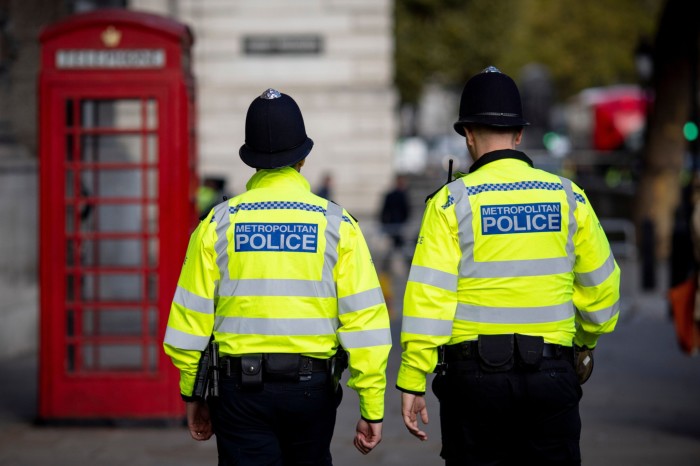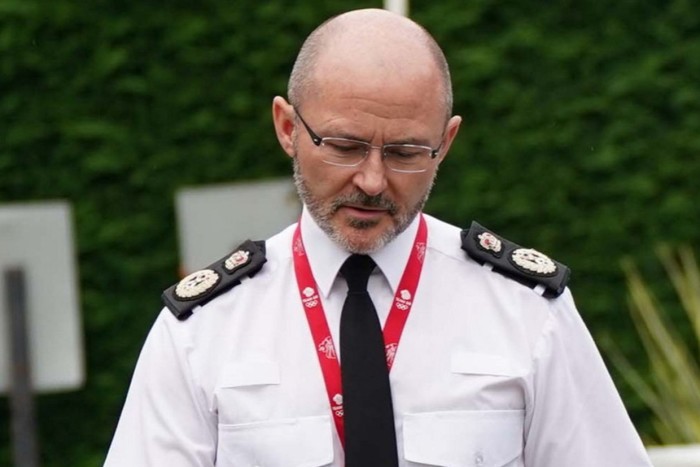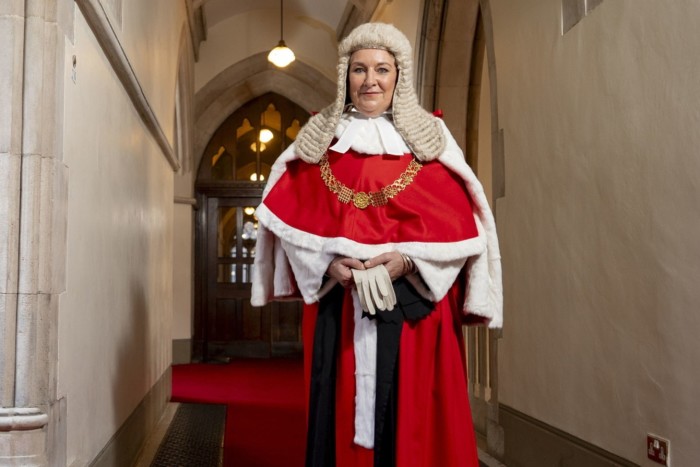Prisons are “on their knees”, police numbers are only now recovering from past cutbacks and there is a record backlog in the courts, which is why senior figures across the justice system bridle at the thought of more cuts.
Nick Emmerson, president of the Law Society, which represents solicitors in England and Wales, said a new round of austerity would be “absolutely disastrous” for the justice system. His view is widely shared in police ranks and among prison officers.
Chancellor Jeremy Hunt is under pressure from his Conservative party colleagues to deliver big tax cuts in his Wednesday Budget to try to boost his party’s flagging electoral prospects. But though he has pledged to protect public spending on defence, education and the NHS, other departments risk being squeezed.
Hunt’s current tax and spend plans envisage 1 per cent real growth in public spending overall until 2029. When his commitment to bigger boosts in spending on key areas is taken into account, the Institute for Fiscal Studies think-tank has estimated the plans imply real-term cuts to “unprotected” departments including Justice and the Home Office of 3.4 per cent a year. The Treasury said it “did not recognise” the IFS figures.
“Further cuts would be an absolute disaster for justice,” Emmerson said. “This is a system that desperately needs significant additional funding just to stand still.”
Police, prison and justice budgets were among the hardest hit by former Tory chancellor George Osborne’s austerity programme in the years after the 2008 financial crisis. The legacy endures in crumbling courtrooms, understaffed prisons and strained police.

Mark Fairhurst, national chair of the Prison Officers’ Association, said jails were “on their knees” — a view frequently echoed by chief inspector of prisons Charlie Taylor, who described conditions for many prisoners as “inhumane” in an interview with the Financial Times last year.
Ashurst said spending on the service in the current financial year was already £100mn over budget, in part because the estate was at capacity. Despite recent increases, funds for prisons remain 8 per cent lower in real terms than in 2010-11, according to the Prison Reform Trust.
“We don’t have the resources to ensure the safe and effective management of the existing prison population, let alone one which under current projections could rise as high as 106,300 by 2027,” said Pia Sinha, the charity’s director and a former prison governor herself.
The police also face tight budgets. Deep cuts in the decade from 2010 put many forces on the back foot.
Gavin Stephens, chair of the National Police Chiefs’ Council, said a recent recruitment drive meant officer numbers were now up by 2.5 per cent since 2010. But he noted recorded crime was also up over the same period, and funding had fallen in real terms.
Police funding from central government declined by about 20 per cent in real terms since 2010, according to the Centre for Economic Policy Research, while recorded crime rose by 62 per cent when online fraud and computer misuse is included, according to official data.

“Longer-term investment is needed to overcome some of the challenges we face in retaining and recruiting officers and investing in the science and technology needed to keep ahead of criminality,” Stephens said.
Rick Muir, director of the Police Foundation think-tank, said further budget cuts would mean that either officer numbers would have to be reduced again, or that reductions would have to be made in other vital areas such as forensic data and intelligence analysis.
Neither of these were plausible given existing “capacity shortages”, he added.
“[The government] are setting these ridiculous spending targets because they know they are not going to win the elections. It’s all a bit of [a] political game,” he said.
Steve Hartshorn, chair of the Police Federation representing 145,000 members with ranks from constable to chief inspector, noted that already 600 of 900 police stations had been closed across England since 2010. Any further reduction in spending would cause “significant harm to police capabilities”.
“We know the cost of everything, but we risk losing the value of our police service,” he added.

The picture is also bleak for the Ministry of Justice. Its budget for day-to-day expenditure has fallen by about 18 per cent in real terms since 2009, according to the IFS.
A record high of about 66,500 cases are waiting to be heard in the crown court, which deals with the most serious criminal cases. The Institute for Public Policy Research think-tank has warned that the backlog will “remain substantially longer than pre-pandemic levels for up to a decade”.
Senior judges have raised concerns about the lack of investment in the justice system. Dame Sue Carr, the lady chief justice, said last month that the time taken for cases to be resolved was “a real concern”.
“There has to be significant investment,” she added.
Legal aid has been cut especially aggressively. Annual spending has fallen 28 per cent in real terms over the past 10 years, according to the National Audit Office.
The NAO said last month that there was evidence the cuts were increasing workloads for other parts of the public sector and that ministers “cannot demonstrate a spending reduction for the public purse” overall.
More litigants are appearing without legal representation in the courts, which the NAO said was requiring more support from judges and court staff.
Sam Townend KC, chair of the Bar Council, said the scale of cuts represented a “false economy”.
“Every penny stripped from the justice sector increases costs elsewhere, through court delays and impacts on other services such as housing, benefits and schools,” he added.
The Treasury said the government had introduced measures to speed up court cases and had recruited 20,000 new police officers. It had also spent £18bn as part of the police funding settlement this year.
“We continue to invest significantly in our police and justice system . . . and will deliver over £600bn of planned public sector investment over the next five years,” the Treasury said.








